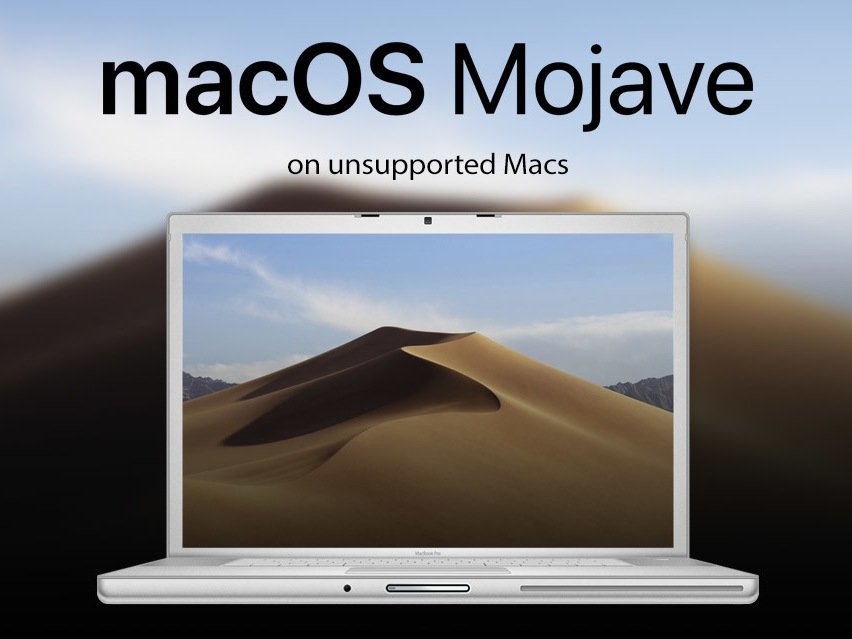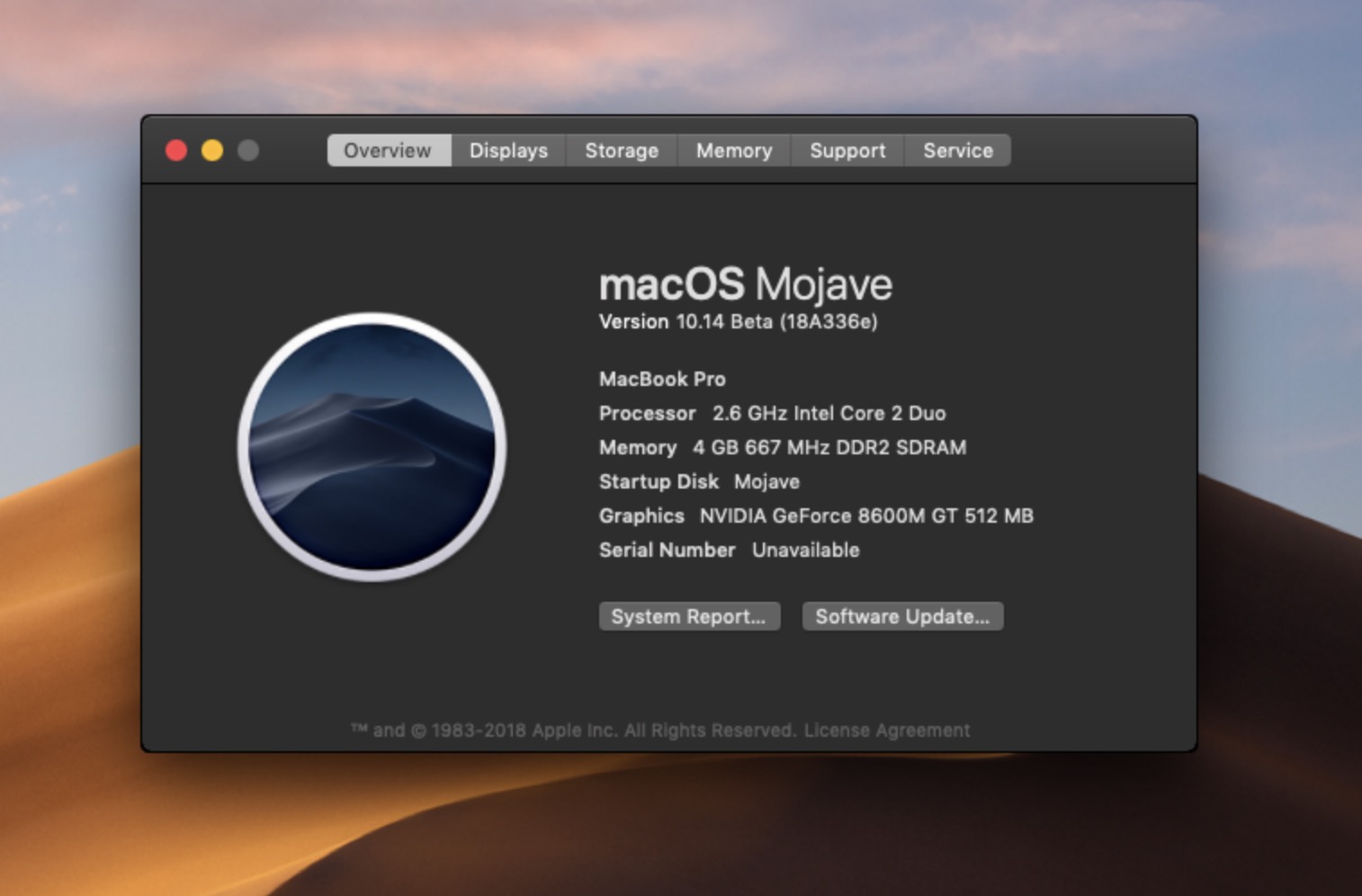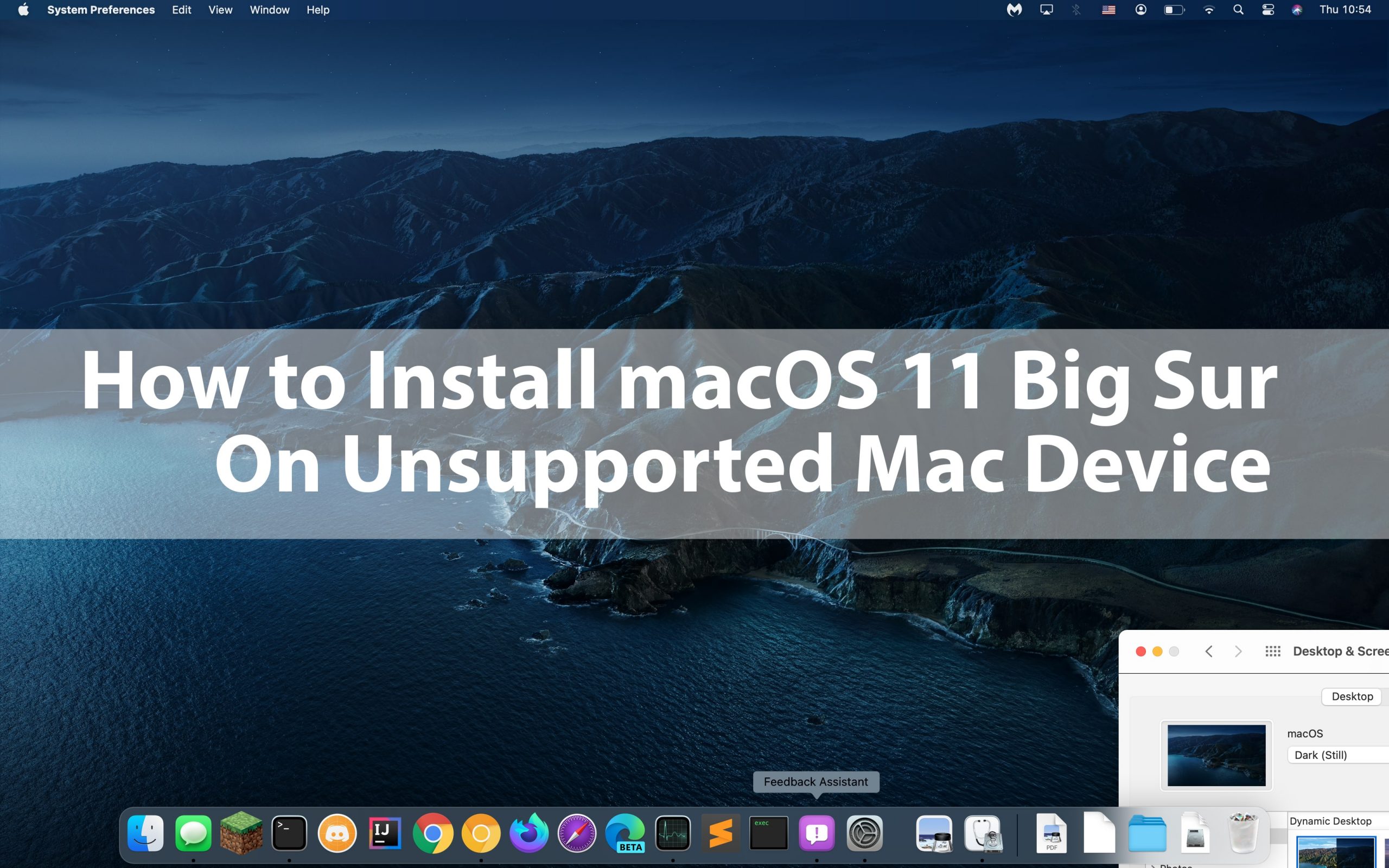Install macOS Mojave on unsupported Mac. Before going to upgrade there are two important points that you should know about that, the first one checks your Wifi compatibility, because some of Mac have Wifi which is unsupported in the macOS Mojave. And the second one is you need to disable the ACP before installing the macOS Mojave.
UpdatesMojave Unsupported Mac Forum
Important Notes:
- Using APFS is REQUIRED in Mojave in order to receive system updates via the normal Software Update method. If you choose to continue using macOS Extended (Journaled) as your filesystem type, you will NOT receive System Updates via System Preferences. If you are not using APFS, you can follow the 10.14.1 installation steps below.
- After applying ANY system update via Software Update, re-applying post-install patches using your Mojave Patcher installer volume will most likely be necessary. If you install a software update and the system fails to boot afterwards, this is what needs to be done.
If your Mac isn't compatible with the latest macOS, you might still be able to upgrade to an earlier macOS, such as macOS Catalina, Mojave, High Sierra, Sierra, or El Capitan. To get the latest features and maintain the security, stability, compatibility, and performance of your Mac, it's important to keep your software up to date. In this video, I go over the process of installing macOS 10.14 Mojave on an unsupported Mac. This entire process involves the use of my 'macOS Mojave Patcher.
10.14.6 can be updated normally via Software Update if using an APFS volume, and will need to be patched using an installer volume created with Mojave Patcher version 1.3.2 or later after installing.
10.14.5
10.14.5 can be updated normally via Software Update if using an APFS volume, and will need to be patched using an installer volume created with Mojave Patcher version 1.3.1 or later after installing.
10.14.4
10.14.4 adds new changes that ARE NOT patchable by the post-install tool of Mojave Patcher v1.2.3 and older! Before updating to 10.14.4, you you will need to use the latest Mojave Patcher version to create a new installer volume, using the 10.14.4 installer app. Then, update to 10.14.4, either by installing via Software Update, or by just using the installer volume you've created to install.
10.14.3
If you are currently running 10.14.1 or 10.14.2, you can simply use the Software Update pane of System Preferences (if using APFS) to apply the 10.14.3 update. Once the update is installed, you will most likely need to re-apply post-install patches to get the system to boot again. This process is detailed in steps 8 - 10 above. If you are currently running 10.14.0, you'll need to proceed with the 10.14.1 update method described below.
10.14.2

If you are currently running 10.14.1, you can simply use the Software Update pane of System Preferences (if using APFS) to apply the 10.14.2 update. Once the update is installed, you will most likely need to re-apply post-install patches to get the system to boot again. This process is detailed in steps 8 - 10 above. If you are currently running 10.14.0, or are using a non-AFPS volume, you'll need to proceed with the 10.14.1 update method described below.
10.14.1/macOS Extended (Journaled) volumes

The Mojave 10.14.1 update does NOT install properly on unsupported machines, and could result in an unbootable OS. If you want to install the 10.14.1 update (and are not currently running 10.14.1), perform the following steps:
• Download the latest version of Mojave Patcher
• Download the installer using the Tools menu of Mojave Patcher
• Create a patched USB installer
• Boot from that, and install 10.14.1 onto the volume containing an older release.
• Once done, apply the post-install patches, and you should now be on 10.14.1.
Much like prior versions of Mac OS, you can easily create a bootable install drive for MacOS Mojave 10.14. These boot install drives allow for things like easily formatting a Mac to perform a clean install of macOS Mojave, installing macOS Mojave onto multiple Macs without them each having to download the installer, or even as a troubleshooting tool since it can be booted from by any. Thanks alot for this web! Finally i can save my data, delete some files, so i can continue update big sur. I have macbook air 2017. First i used macbook pro 2012 with high sierra as 2nd mac using thunderbolt 2 to thunderbolt 2 cable but it can’t detect my macintosh disk. I tried again with macbook air 2013 with mojave and it works!
Mac Mini Mid 2011 Mojave

How To Upgrade An Unsupported Mac
Carbon Copy Cloner requires macOS. CCC will not run on Windows.
Carbon Copy Cloner 5 is the latest version available. Users running Yosemite (10.10), El Capitan (10.11), Sierra (10.12), High Sierra (10.13), Mojave (10.14), or Catalina (10.15) should use this version of CCC. If you are having trouble downloading CCC from the link above, try this alternate download location.
Upgrading from CCC 4? Macos rar extract. CCC 5 is a paid upgrade. CCC 4 Personal and Household licenses purchased prior to May 22, 2017 are eligible for upgrade pricing. When you open CCC 5, it will automatically retrieve your new license or an upgrade coupon that you can use to purchase CCC 5 at 50% off. CCC 4 licenses purchased on or after May 22, 2017 are eligible for a free CCC 5 upgrade license.
CCC 5: Support for macOS 11 Big Sur
CCC 5.1.22 (and later) is qualified for macOS 11 Big Sur. Open CCC and choose 'Check for updates..' from the Carbon Copy Cloner to get the update, or click the 'Download CCC 5' button above. Please take a moment to review the following resources prior to upgrading to macOS Big Sur:
Unsupported Mac Mojave Hard Drive
Carbon Copy Cloner 4.1.24 is compatible with Mountain Lion (10.8), Mavericks (10.9), Yosemite (10.10), El Capitan(10.11), Sierra (10.12) and High Sierra (10.13). Note that while this version of CCC may work on El Capitan and newer OSes, we recommend that El Capitan+ users upgrade to CCC 5. We offer technical support for CCC 4, but we are no longer actively developing it. If you are having trouble downloading CCC from the link above, try this alternate download location.
CCC 4 and Mojave+: CCC 4 is qualified up to macOS High Sierra. CCC 4 license holders are welcome to continue using CCC 4 on later OSes with the understanding that this is an untested and unsupported configuration. CCC 5 is fully qualified on macOS Mojave and offers extensive support for APFS, including support for point-in-time restores via APFS filesystem snapshots.
Update Unsupported Mac To Mojave
Unsupported Mac Mojave Operating System
Unsupported Versions
How To Upgrade Unsupported Mac To Macos Mojave

Unsupported Mac Mojave Catalina
Download CCC 3.5.7 for use on Snow Leopard (10.6) and Lion (10.7). Download CCC 3.4.7 for use on Tiger (10.4) and Leopard (10.5). CCC 3.4.7 and 3.5.7 are provided as-is; we regret that we cannot offer any support for the installation or use of these older versions of CCC.